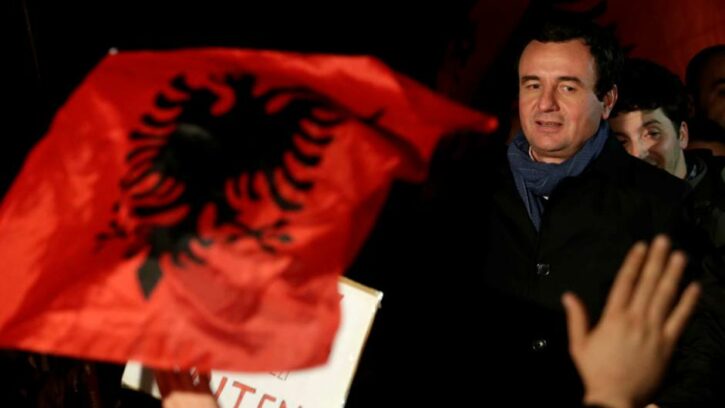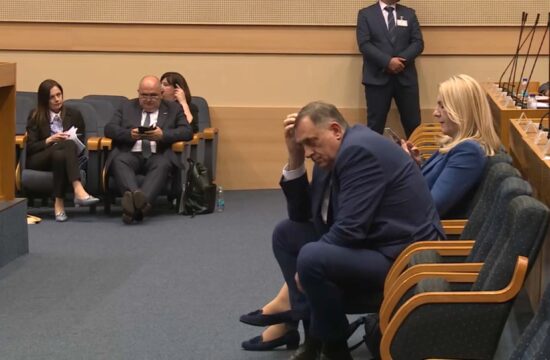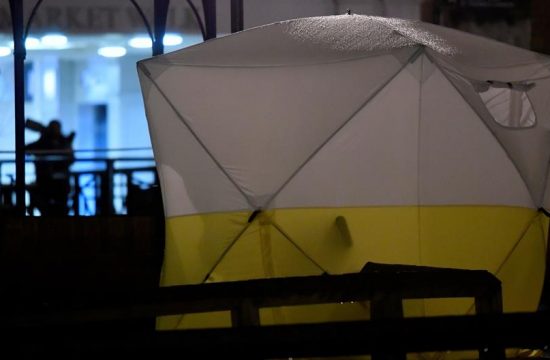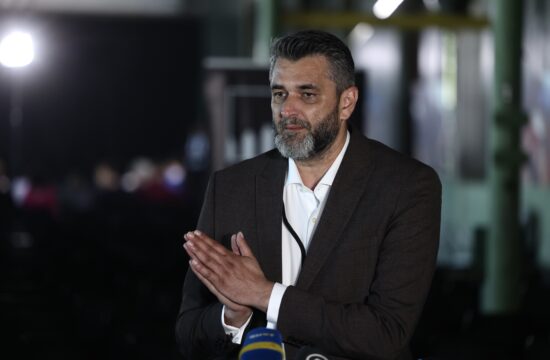
Albin Kurti, the most likely new Kosovo Prime Minister, said on Wednesday that the unification of the Albanians could not happen in the European Union, but an idea on confederation could exist, the Beta news agency reported.
Kurti's Vetëvendosje (Self-determination) came out as the strongest single party in Sunday's general elections and as likely prime minister, he advocates an integration of Kosovo and Albania into a federation similar to Germany, with decentralised institutions.
“I can’t say that the national unification happens in the EU. We join Danes, Austrians and Spaniards there. It is here that our union must happen. I would use a statement by Arbën Xhaferi: ‘The Albanian historical advocacy for unification’,” Kurti said.
His idea includes the Historical Institute in Kosovo’s southern town of Prizren, Mining Faculty in Mitrovica in the north, Tourism Faculty in Albania, in either the town of Valona or Durres and the constitutional court in Shkoder, also in Albania.
Kurti also said that if he became the prime minister, he would respect Kosovo’s symbols despite some remarks about them. But, in the meetings with Albanian representatives, “it won’t be seen whose side the national or state flag is.”
“We won’t have meetings with Albania for photo opportunity, but for the implementation of, let’s say, common market, joint civil register of companies, joint governmental commissions for foreign affairs and other issues,” Kurti said.
He earlier announced the revision of all agreements which Pristina and Belgrade signed during the dialogue on the normalisation of relations held under the EU auspices which had been on hold since last November, following Pristina's decision to introduce the 100 percent import tariffs on goods from Serbia and Bosnia, which are still in place.
“We first need a dialogue on the dialogue,” he added, to establish the rules and the goals of the talks.
Kurti also said he would start his premiership by talking to the local Serbs, but not those from the Serb List, a party supported by Belgrade, describing it as “not a political, but state party.”
Kosovo Constitution stipulates that its government must have a Serb minister, but whoever is suggested must have the support of the Serb deputies in the parliament.
Currently, Serb Lists holds all ten seats and it is not clear how any minister who doesn’t belong to their party could be approved by the majority of the MPs.




